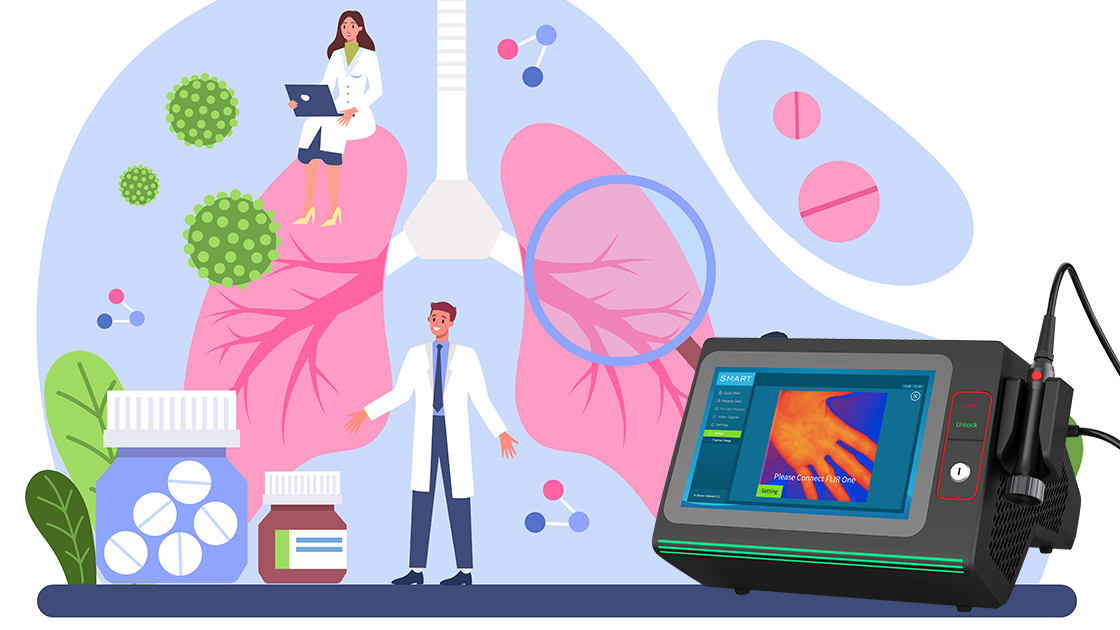Page Contents
Lung Inflammation Unmasked: The Hidden Threat
Lung inflammation is a silent but serious health issue that affects millions worldwide. Often triggered by environmental factors such as pollution, allergens, and smoking, this condition leads to chronic respiratory problems. Symptoms may include coughing, wheezing, and shortness of breath. If left untreated, lung inflammation can escalate into more severe conditions, such as asthma or chronic obstructive pulmonary disease (COPD). Understanding this hidden threat is crucial for effective management and recovery, and innovative treatments like laser therapy are emerging as viable solutions.
Laser Therapy Demystified: The Power of Light
Laser therapy is an advanced treatment that utilizes specific wavelengths of light to promote healing. Known scientifically as photobiomodulation, this technique stimulates cellular function and enhances tissue repair. Different types of lasers are employed, each targeting specific health issues. In the context of lung inflammation, laser therapy works by penetrating deep into tissues, encouraging blood flow and reducing inflammation at the cellular level. This method offers a non-invasive approach that minimizes discomfort while maximizing therapeutic benefits.
Transformative Benefits: More Than Just Relief
The benefits of laser therapy extend far beyond merely alleviating symptoms. One of the most significant advantages is its ability to reduce inflammation effectively, leading to improved lung function. Patients often report increased energy levels, enhanced breathing capacity, and quicker recovery from respiratory infections. Additionally, laser therapy can decrease reliance on pharmaceuticals, thereby reducing the risk of potential side effects associated with long-term medication use. As a holistic approach, it contributes to overall respiratory health, making it a promising option for many patients.
The Laser Experience: What Happens During Treatment?
A typical laser therapy session is straightforward and designed to be comfortable. Patients usually begin with a consultation to discuss their medical history and specific symptoms. During the treatment, a trained professional directs the laser at the affected areas. The session lasts between 20 to 30 minutes, depending on individual needs. Most patients experience a gentle warmth, with no pain or discomfort involved. After the session, some might notice mild redness, which typically subsides quickly. Adhering to post-treatment guidelines, such as staying hydrated and avoiding irritants, can enhance the results.
Research and Evidence: Supporting the Use of Laser Therapy
Numerous studies support the efficacy of laser therapy in treating lung inflammation. Research has shown that patients who undergo this treatment experience significant reductions in inflammatory markers and improved lung function tests. Clinical trials have demonstrated that laser therapy not only alleviates symptoms but also promotes long-term healing. As ongoing research continues to explore its applications, laser therapy stands out as a promising tool in modern respiratory care.
In conclusion, laser therapy offers a revolutionary approach to managing lung inflammation. By understanding the condition and exploring innovative treatments, patients can achieve significant improvements in their respiratory health. As the evidence mounts in favor of laser therapy, it is becoming an increasingly valuable option for those seeking relief from the burdens of lung inflammation.
